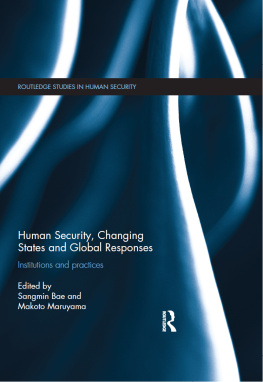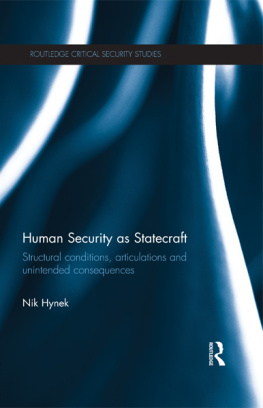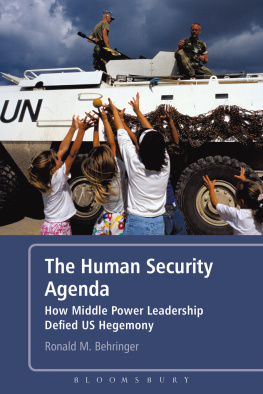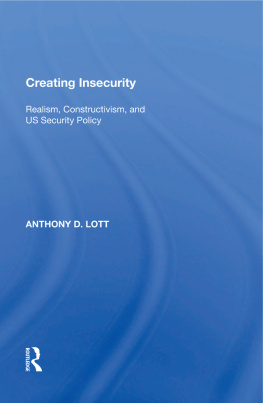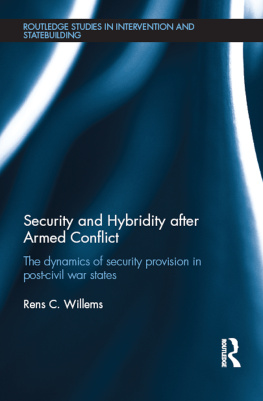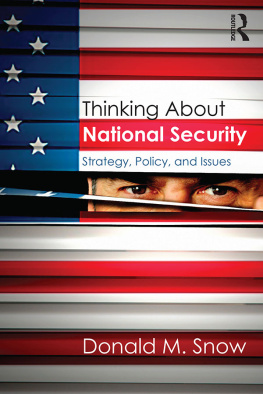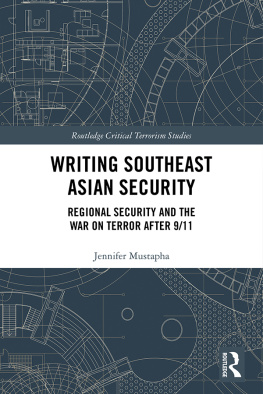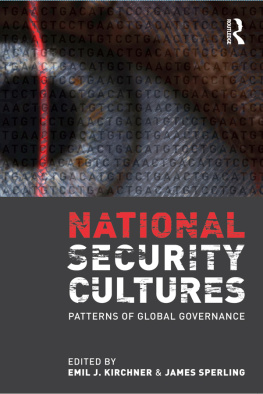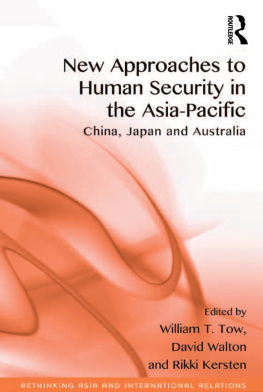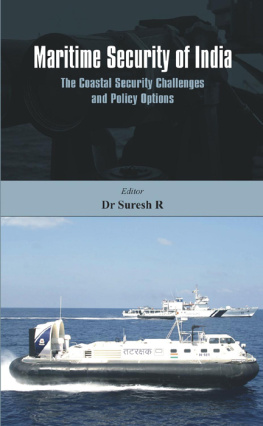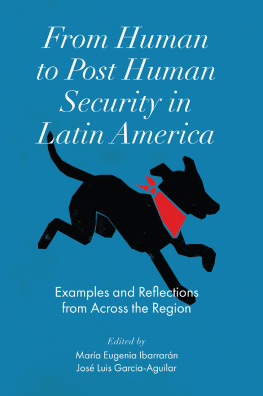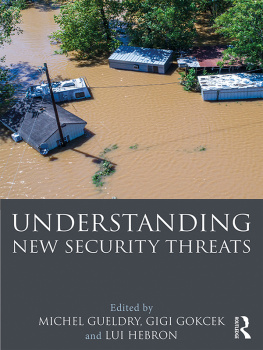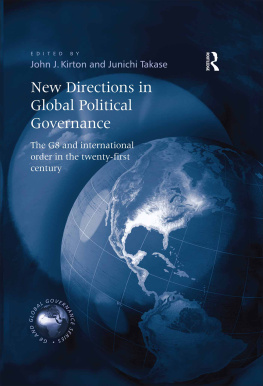Sangmin Bae - Human Security, Changing States and Global Responses: Institutions and Practices
Here you can read online Sangmin Bae - Human Security, Changing States and Global Responses: Institutions and Practices full text of the book (entire story) in english for free. Download pdf and epub, get meaning, cover and reviews about this ebook. City: London, year: 2014, publisher: Routledge, genre: Science / Politics. Description of the work, (preface) as well as reviews are available. Best literature library LitArk.com created for fans of good reading and offers a wide selection of genres:
Romance novel
Science fiction
Adventure
Detective
Science
History
Home and family
Prose
Art
Politics
Computer
Non-fiction
Religion
Business
Children
Humor
Choose a favorite category and find really read worthwhile books. Enjoy immersion in the world of imagination, feel the emotions of the characters or learn something new for yourself, make an fascinating discovery.
- Book:Human Security, Changing States and Global Responses: Institutions and Practices
- Author:
- Publisher:Routledge
- Genre:
- Year:2014
- City:London
- Rating:3 / 5
- Favourites:Add to favourites
- Your mark:
Human Security, Changing States and Global Responses: Institutions and Practices: summary, description and annotation
We offer to read an annotation, description, summary or preface (depends on what the author of the book "Human Security, Changing States and Global Responses: Institutions and Practices" wrote himself). If you haven't found the necessary information about the book — write in the comments, we will try to find it.
This book critically assesses the human security challenges faced by states, focusing on how and to what extent the state is influenced by global structures and operations.
Having grown rapidly since the 1990s, the field of human security has spawned a wide variety of academic research. This research has helped to reconceptualize the notion of security, both broadening and deepening it, and it has created a space where unconventional and multidimensional forms of security inform international policy practices. However, while various issues and cases of human security have received growing academic attention and policy interest, many of the existing books on human security focus primarily on non-state actors. This leaves a key question unanswered: why do sovereign states take on leadership roles in promoting human security?
To answer the question of why and how national governments influence international human security policy, this volume examines the domestic political factors and structures that mediate the range of policy choices. Important domestic variables include the cultural match (e.g., Does the country often favor multilateralism and promote a rule-bound international society?), the nature of the political interests and realities that are present (e.g., Does the country see the promotion of human security as a strategic choice?), and the occurrence of important historical events such as wars, revolutions, or natural disasters (e.g., Does the country, during the crisis, help to foster a new way of managing enduring security threats?). Using this line of analysis, the book illuminates the role of the state in handling critical human security issues and its rationale for doing so.
This book will be of much interest to students of human security, peace studies, global governance, development studies and IR in general.
Sangmin Bae: author's other books
Who wrote Human Security, Changing States and Global Responses: Institutions and Practices? Find out the surname, the name of the author of the book and a list of all author's works by series.

